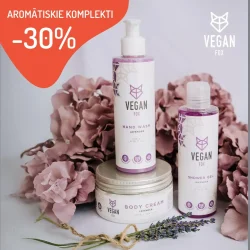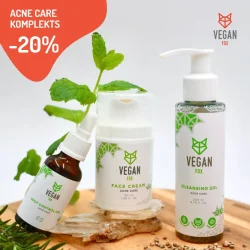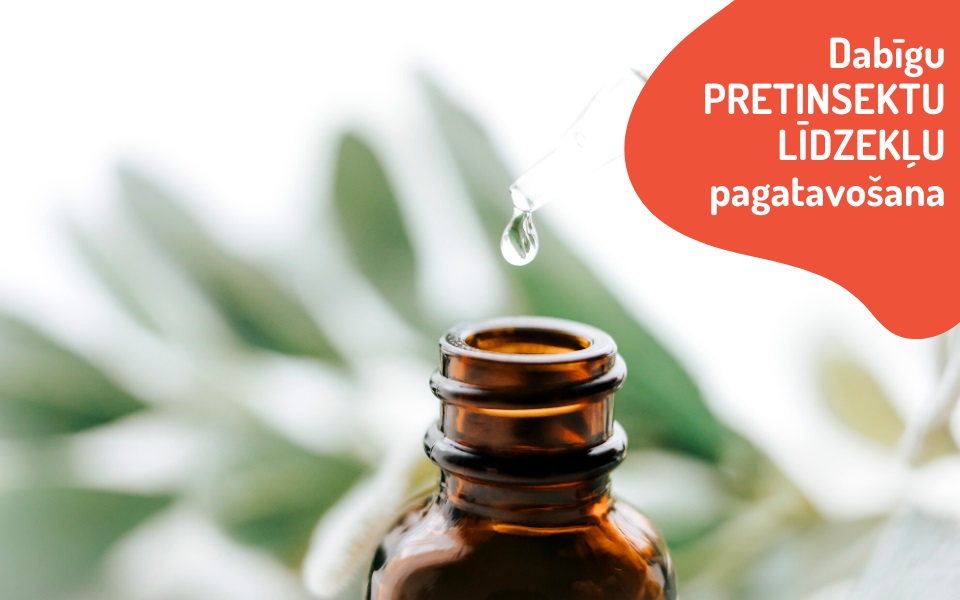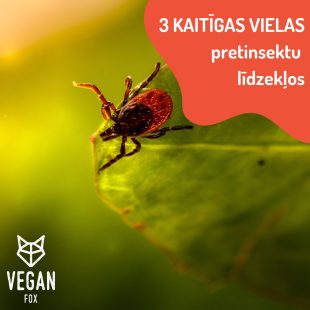Par dabīgiem līdzekļiem cīņā ar kukaiņu kodumiem
Kā pagatavot dabīgu kukaiņu atvairīšanas līdzekli? Vasaras karstumā modusies visa dzīvā radībiņa – mārītes, sienāži, bitītes un citi sisinātāji un zumētāji, kas rosās un sagādā prieku visiem dabas mīļiem. Un tomēr, līdz ar labajiem kukainīšiem modušies arī dažādi insekti – tostarp odi, dunduri, ērces, kas mēdz ne vien sabojāt noskaņojumu, bet daudziem pat rada vēlmi izvairīties no atpūtas pie dabas.
Lai arī knišļu kodumi var būt ārkārtīgi nepatīkami, lielākoties to radītais apsārtums un pietūkums nav ilgstoša parādība. Turklāt – vasara ir pārāk īsa, lai tas sabojātu prieku piedzīvot un izbaudīt!
Arī insektu atvairīšanas līdzekļi veikalu plauktos ir tik dažādi, ka, šķiet, tai nevajadzētu būt problēmai. Sākot no kukaiņu atbaidīšanas svecēm, beidzot ar līdzekļiem, kas izsmidzināmi uz ādas un drēbēm. Un tomēr, man allaž šķiet svarīgi atcerēties, ka āda ir mūsu lielākais orgāns. Un viss, kas nonāk saskarsmē ar mūsu ādu, ilgtermiņā nonāk arī organismā.
Protams, ir ārkārtīgi grūti izvairīties no pilnīgi visām vidē esošajām ķimikālijām. Taču, manuprāt, ir būtiski saglabāt apzinātību, gādājot ikdienā lietojamos produktus – īpaši attiecībā uz tiem produktiem, kas nonāk uz ādas un netiek uzreiz noskaloti.
Kaitīgās vielas pretinsektu līdzekļos
Lietojot atbilstoši norādēm uz iepakojumiem, lielākoties kukaiņu atbaidīšanas līdzekļi būtiskus riskus nerada. Un tomēr, atsevišķas populārākās sastāvdaļas pretinsektu līdzekļos var kairināt ādu un radīt vides veselības riskus.
Tā, piemēram, sargājot ādu no kukaiņu kodumiem un izvēloties veikalā iegādājamos produktus, izvairies no sekojošām sastāvdaļām:
- Dietiltoluamīds – Šī ir viena no visbiežāk izmantotajām ķīmiskajām vielām kukaiņu atbaidīšanas līdzekļos. Mazās devās šīs vielas lietošana tiek uzskatīta par drošu un tomēr – ja tās koncentrācija ir lielāka par 50%, dietiltoluamīds var izraisīt ādas kairinājumu.
- Permetrīns – ietekmē kukaiņu nervu sistēmu, taču par ietekmi uz cilvēku informācija ir dažāda. Ir zināms, ka permetrīna ieelpošana var kairināt degunu, kaklu un plaušas, kā arī tā lietošana var izraisīt galvassāpes, nogurumu, reiboni. Tajā pat laikā, atkarībā no sastāva, tas ir klasificēts kā netoksisks vai vidēji toksisks pesticīds.
- P-mentān-3,8-diols – Atsevišķos gadījumos šīs vielas bieža saskarsme ar ādu var izraisīt ādas kairinājumu – apsārtumu, pietūkumu.
Svarīgi piebilst, ka lielākoties šīs vielas pētniecības procesā tiek testētas uz dzīvniekiem, lai pārbaudītu iespējamos alerģiju un citus veselības riskus. Izvēloties ādas kopšanas produktus, man ir ārkārtīgi būtiski zināt, ka to radīšana bijusi ētiska, kā arī videi un dzīvniekiem draudzīga. Es ticu – ja šo lasi, Tu noteikti jūties tāpat!
5 ēteriskās eļļas paštaisītam pretinsektu līdzeklim
Mājās gatavots pretinsektu līdzeklis – cik vienkārši ir to pagatavot? Un kam jābūt sastāvā, lai tas būtu ne vien efektīvs, bet arī drošs – gan Tev, gan videi? Tu noteikti zini, ka ēteriskajām eļļām ir ne vien patīkams aromāts, bet arī vairāki praktiski pielietojumi. Viens no tiem – tās palīdz atvairīt nevēlamus insektus.
Protams, ēteriskās eļļas ir pietiekami koncentrētas, tādēļ vienlaikus ir svarīgi pārliecināties, ka Tev nav alerģiska reakcija. Tā, piemēram, uzklāj pavisam nedaudz eļļas uz ādas un pāris dienas pavēro ķermeņa reakciju.
Kuri ēterisko eļļu aromāti palīdz cīņā ar ērcēm, odiem un citiem knišļiem?
- Rozmarīna eļļa ne vien palīdz vairot enerģiju, bet arī atbaida kukaiņus;
- Timiāna ēteriskā eļļa – izrādās, atsevišķos pētījumos efektivitātes ziņā tā pārspējusi pat dietiltoluamīdu;
- Citronzāles ēteriskā eļļa – lieto uz ādas, drēbēm vai difūzerī. Starp citu, tieši šo aromātu bieži izmanto arī pretinsektu svecēs;
- Salvijas ēteriskā eļļa – tā ir antibakteriāla, uzlabo garastāvokli un palīdz izvairīties no kukaiņiem;
- Lavandas ēteriskā eļļa – gan aromterapijā, gan tējās un citos pielietojuma veidos, tā relaksē, uzlabo miegu, kā arī atbaida mušas, odus un ērces.
Izmanto kādu no šīm eļļām vai radi sev tīkamu eļļu kombināciju. Sapildi izsmidzināmā pudelītē, piemēram, 20 pilienus citronzāles ēterisko eļļu, 20 pilienus lavandas ēterisko eļļu, 20 pilienus rozmarīna ēterisko eļļu vai citas eļļas pēc savas patikas, pievieno ūdeni un ēdamkaroti spirta – tas palīdzēs saglabāt spreju ilgāk svaigu un aromātisku.
Tas arī viss – Tavs dabīgais insektu atbaidīšanas līdzeklis ir gatavs!
Novēlu Tev gaisīgu un siltu vasaru!
Mīlestībā,
Maija Rieksta-Riekstiņa
Vegan Fox vadītāja un radītāja



